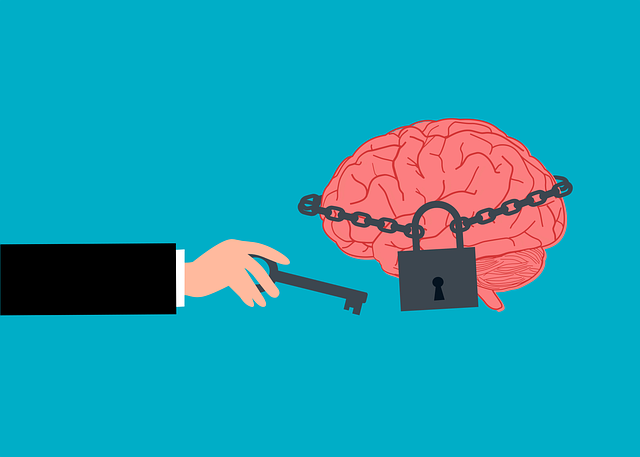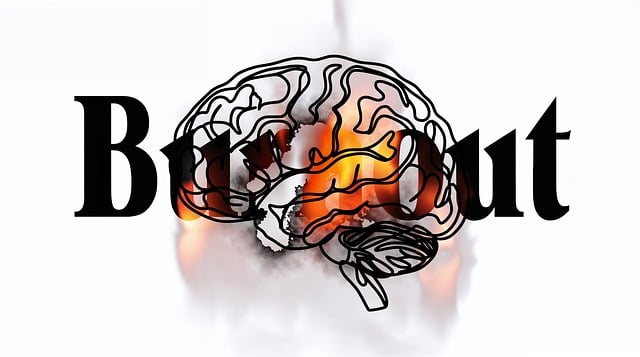Greenwood Village Geriatrics Therapy focuses on comprehensive risk management for optimal client mental wellness, utilizing personalized interventions, empathy-driven therapy sessions, and evidence-based stress management workshops. They prioritize proactive strategies to mitigate burnout and secondary trauma among their professionals, integrating trauma support services and continuous evaluation of their protocols to adapt to evolving mental health needs. Through tailored interventions and flexible approaches, Greenwood Village Geriatrics Therapy ensures a dynamic, supportive environment for both clients and therapists alike.
At Greenwood Village Geriatrics Therapy, risk management planning is not just a checklist—it’s a vital tapestry woven into the fabric of our mental health practice. This comprehensive guide explores how professionals can navigate the intricate landscape of potential hazards and vulnerabilities. From identifying risks to implementing mitigation strategies, we delve into a structured approach that ensures patient safety and fosters a nurturing environment. By continuously evaluating and adapting protocols, Greenwood Village Geriatrics Therapy demonstrates its commitment to revolutionizing care through robust risk management.
- Understanding Risk in Mental Health Practice at Greenwood Village Geriatrics Therapy
- Identifying Potential Hazards and Vulnerabilities
- Developing a Comprehensive Risk Management Plan
- Implementing Strategies for Mitigating Risks
- Continuous Evaluation and Adaptation of Risk Management Protocols
Understanding Risk in Mental Health Practice at Greenwood Village Geriatrics Therapy

At Greenwood Village Geriatrics Therapy, understanding risk is a foundational aspect of our mental health practice. We recognize that each client brings unique challenges and vulnerabilities, from chronic mental health conditions to age-related cognitive decline. By thoroughly assessing these risks, we can tailor interventions to support not just symptom management but also the overall mental wellness of our clients. Our approach involves integrating empathy building strategies into daily therapy sessions, fostering an environment where clients feel heard, understood, and supported.
This proactive risk management planning extends beyond individual therapy. Greenwood Village Geriatrics Therapy organizes regular Stress Management Workshops to empower clients with practical tools for coping with stress and adversity. These workshops not only enhance our clients’ ability to navigate challenges but also contribute to a broader culture of resilience within our community. By combining thorough risk assessment, empathy-driven practice, and evidence-based stress management techniques, we strive to create a safe and supportive space where every client can embark on their journey towards mental wellness.
Identifying Potential Hazards and Vulnerabilities

Mental health professionals, much like their geriatric counterparts at Greenwood Village Geriatrics Therapy, face unique challenges that can expose them to various risks. Identifying potential hazards and vulnerabilities is a crucial step in developing an effective risk management plan. These risks can stem from high-stress work environments, intense emotional demands, and complex patient interactions. For instance, prolonged exposure to traumatic stories or intense conflicts with difficult patients can lead to burnout, emotional exhaustion, or even secondary trauma.
Professionals must be vigilant in recognizing signs of stress and implementing proactive measures. This involves adopting conflict resolution techniques to navigate challenging situations, as well as empathy-building strategies to foster strong therapeutic alliances. Additionally, engaging in social skills training can enhance communication, reducing potential misunderstandings and fostering a more supportive work environment.
Developing a Comprehensive Risk Management Plan

Developing a comprehensive risk management plan is an essential step for mental health professionals to ensure the safety and well-being of their clients. This process involves meticulously assessing potential risks associated with various aspects of therapy, including but not limited to client backgrounds, treatment modalities, and the therapeutic environment. At Greenwood Village Geriatrics Therapy, we understand that each client presents unique challenges. Therefore, our risk management strategy is tailored to address individual needs, incorporating evidence-based practices for effective mitigation.
By integrating Trauma Support Services into our risk management plan, we aim to create a supportive atmosphere that fosters mental wellness and boosts client confidence. This proactive approach involves training staff to recognize and respond to signs of distress, implementing crisis intervention protocols, and promoting open communication channels. Such measures not only safeguard clients but also empower them to navigate their therapeutic journeys with enhanced resilience and trust in the care they receive.
Implementing Strategies for Mitigating Risks

Implementing effective risk management strategies is a cornerstone of successful practice for mental health professionals. At Greenwood Village Geriatrics Therapy, we understand that mitigating risks goes beyond simply identifying potential hazards; it involves proactive measures to foster a safe and supportive environment. This includes prioritizing Stress Management techniques as chronic stress can significantly impact both professional and personal well-being, potentially leading to burnout and reduced clinical effectiveness.
A robust Risk Management Planning for Mental Health Professionals process should encompass various interventions tailored to individual needs. Encouraging clients to develop coping skills is a key strategy. By equipping them with tools to navigate challenges, professionals can create a more resilient ecosystem where risks are manageable. This holistic approach ensures that both practitioners and their clients thrive, ultimately enhancing the quality of care provided in settings like Greenwood Village Geriatrics Therapy.
Continuous Evaluation and Adaptation of Risk Management Protocols

In the dynamic field of mental health care, where client needs and societal landscapes constantly evolve, effective risk management protocols must be fluid entities—adaptable to new challenges and insights. At Greenwood Village Geriatrics Therapy, we understand that rigid strategies can hinder progress in fostering mental wellness. Thus, continuous evaluation is paramount. Regularly reviewing and updating our risk management plans ensures we remain responsive to emerging trends and best practices in treating conditions like depression prevention and anxiety relief. This dynamic approach allows us to tailor interventions for individual clients, enhancing the efficacy of our services.
Through ongoing assessment, we incorporate feedback from both clients and therapists, leveraging these insights to refine our protocols. Such adaptability is crucial for developing innovative Mental Wellness Coaching Programs that cater to diverse needs. By staying agile, Greenwood Village Geriatrics Therapy remains committed to providing cutting-edge support, ensuring the highest standards of care in a constantly changing mental health landscape.
Mental health professionals, like those at Greenwood Village Geriatrics Therapy, must proactively manage risks to ensure patient safety and well-being. By understanding risk dynamics, identifying potential hazards, and developing robust risk management plans, therapists can create a secure environment that fosters healing. Continuous evaluation and adaptation of these protocols are essential, as the field evolves with new challenges and best practices. Implementing effective strategies not only mitigates risks but also strengthens the overall quality of care provided.










